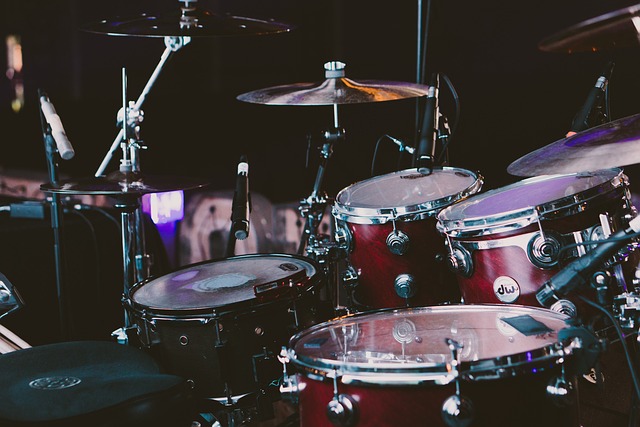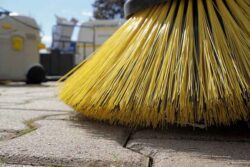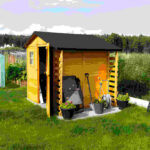
Musical instruments are more than mere objects; they are gateways to the enchanting world of music. Whether you’re a seasoned musician or just starting your musical journey, understanding how to clean and maintain your instruments is essential for preserving their beauty, ensuring longevity, and contributing to the overall harmony of your musical experience.
In this comprehensive guide, we’ll explore the art of instrument care, from the delicate strings of a violin to the robust brass of a trumpet. Join us as we unravel the secrets to keeping your instruments in tune, both musically and hygienically.
The Importance of Cleaning and Maintaining Musical Instruments
1. Preservation of Sound Quality
Regular cleaning and maintenance contribute to the optimal sound quality of musical instruments. Clean instruments resonate better, producing a clearer and more beautiful tone.
2. Extended Lifespan
Proper care ensures the longevity of musical instruments, allowing them to be cherished and played for generations. Regular maintenance prevents deterioration and extends the lifespan of the instrument.
3. Hygiene for Musicians
Instruments that come in direct contact with the musician, such as woodwind and brass instruments, require special attention to prevent the buildup of germs. Cleaning contributes to the overall hygiene of the instrument and the well-being of the musician.
4. Enhanced Aesthetic Appeal
Clean instruments not only sound better but also look more appealing. Regular maintenance, including polishing and cleaning, preserves the visual beauty of the instrument, making it a joy to play and behold.
5. Prevention of Damage
Regular inspections and maintenance help identify potential issues before they become major problems. Addressing small dents, scratches, or other damage promptly prevents further deterioration and costly repairs.
6. Consistent Performance
Well-maintained instruments perform consistently. Whether it’s the tuning of strings, the action of keys, or the responsiveness of valves, regular care ensures that the instrument behaves predictably, allowing the musician to focus on their craft.
7. Resale Value
Instruments that are well cared for retain higher resale value. Should you decide to upgrade or part with an instrument, its condition significantly influences its market value.
8. Optimal Functionality
Clean and well-maintained instruments function optimally. Whether it’s smooth valve action, responsive keys, or precise tuning, regular care ensures that every component works as intended.
9. Hygienic Accessories
Accessories such as mouthpieces, reeds, and straps, which come in direct contact with the musician, require regular cleaning. This practice promotes not only the longevity of the accessories but also the hygiene of the entire playing experience.
10. Prevention of Corrosion
Instruments made of metal, such as brass instruments, are susceptible to corrosion. Regular cleaning and application of protective coatings prevent corrosion, ensuring the structural integrity of the instrument.
Tips for Cleaning and Maintaining String Instruments
Handling and Storage
Begin with proper handling and storage. Always hold a string instrument by its neck, and store it in a temperature-controlled environment away from direct sunlight and extreme humidity.
Cleaning Strings
Wipe the strings with a soft, lint-free cloth after each use to remove rosin buildup and sweat. Avoid using alcohol-based cleaners, as they can damage the varnish on the instrument.
Rosin Removal
If rosin has built up on the instrument’s body, use a soft cloth dampened with water to gently wipe it away. Dry the area immediately to prevent water damage.
Fingerboard Care
Apply a small amount of specialized string instrument oil to the fingerboard to prevent it from drying out. Wipe away any excess oil to avoid a slippery surface.
Tips for Cleaning and Maintaining Woodwind Instruments
Swabbing After Use
Woodwind instruments, such as clarinets and saxophones, require swabbing after each use. Use a cleaning swab to remove moisture from the inside of the instrument, preventing the growth of mold and bacteria.
Cleaning the Mouthpiece
Regularly clean the mouthpiece with a mild soap and warm water solution. Ensure all soap residue is thoroughly rinsed away, and use a mouthpiece brush to remove any stubborn debris.
Oiling Woodwind Joints
Apply a small amount of key or bore oil to the instrument’s joints to keep them lubricated. Be cautious not to use excessive oil, as it can attract dirt.
Pad Care:
Inspect the pads for wear and tear. Replace any damaged pads promptly to maintain proper seals and prevent air leaks.
Cleaning and Maintaining Brass Instruments
Routine Cleaning
Brass instruments, like trumpets and trombones, benefit from routine cleaning. Use a specialized brass cleaning solution or a mixture of vinegar and salt to remove tarnish.
Polishing for Shine
Polish the instrument with a soft cloth after cleaning to restore its shine. Avoid abrasive materials that can scratch the surface.
Valve and Slide Maintenance
Regularly oil the valves or slides with a recommended valve oil. Clean and remove excess oil regularly to prevent buildup.
Checking for Dents
Inspect the instrument for dents and dings. Small dents can affect sound quality and should be addressed by a professional instrument technician.
Cleaning and Maintaining Percussion Instruments
Caring for Drumheads
Drumheads can be cleaned with a damp cloth. Ensure they are completely dry before playing to maintain their tension and sound quality.
Cleaning Cymbals
Clean cymbals with a specialized cymbal cleaner to remove fingerprints and dirt. Avoid using abrasive materials that can scratch the surface.
Tuning Drums
Regularly tune drumheads to maintain the desired pitch. Use a drum key to adjust the tension evenly across the head.
Hardware Inspection
Inspect drum hardware for rust or corrosion. Clean and lubricate any moving parts to ensure smooth operation.
Hygiene Considerations for All Instruments
Mouthpiece and Reed Care
For instruments that come in direct contact with the mouth, such as woodwinds and brass, prioritize hygiene. Clean mouthpieces and reeds regularly, and consider using antimicrobial cleaning solutions.
Hand Hygiene for Musicians
Encourage musicians to wash their hands before playing to prevent the transfer of oils and dirt to the instrument. For portable instruments, keep hand sanitizer nearby.
Individual Cloth Usage
Provide individual cleaning cloths for each musician, especially in group settings. This prevents the spread of germs between players.
Regular Check-ups
Schedule regular check-ups with a professional instrument technician. They can identify and address potential issues before they become major problems.
Safe Storage Practices
Instrument Cases
Invest in high-quality instrument cases for safe storage. Cases protect instruments from dust, temperature fluctuations, and accidental damage.
Humidity Control
Maintain consistent humidity levels in storage areas, as extreme humidity can damage wooden instruments. Consider using humidity control devices in instrument cases.
Instrument Stands
Avoid leaving instruments on stands for extended periods, especially in direct sunlight. Stands are suitable for temporary use but can expose instruments to potential hazards.
Securing Straps and Harnesses
For instruments with straps or harnesses, secure them properly in the case to prevent tangling and potential damage.
Environmental Considerations When Cleanng Musical Instruments
Avoiding Extreme Conditions
Keep instruments away from extreme temperatures and humidity. Rapid changes in environmental conditions can lead to warping, cracking, or other damage.
Cleaning Outdoor Instruments
If you play outdoors, particularly with brass or woodwind instruments, wipe them down afterward to remove outdoor contaminants. Pay special attention to keys, valves, and reeds.
Instrument Covers
Consider using instrument covers for outdoor performances. Covers protect against dust, pollen, and unexpected weather conditions.
Transportation Precautions
When transporting instruments, secure them properly in cases and avoid overcrowding. Use padded bags or cases for additional protection.
Conclusion
As musicians, our instruments are not just tools; they are extensions of our creative expression. By incorporating these simple yet crucial cleaning and maintenance practices into your routine, you not only preserve the integrity of your instrument but also ensure that the melodies you produce are as crisp and clear as intended.
May your strings resonate, your keys harmonize, and your brass instruments gleam in the spotlight of your musical journey. Happy cleaning, happy playing, and may your instruments continue to be the vessels through which your musical story unfolds.







